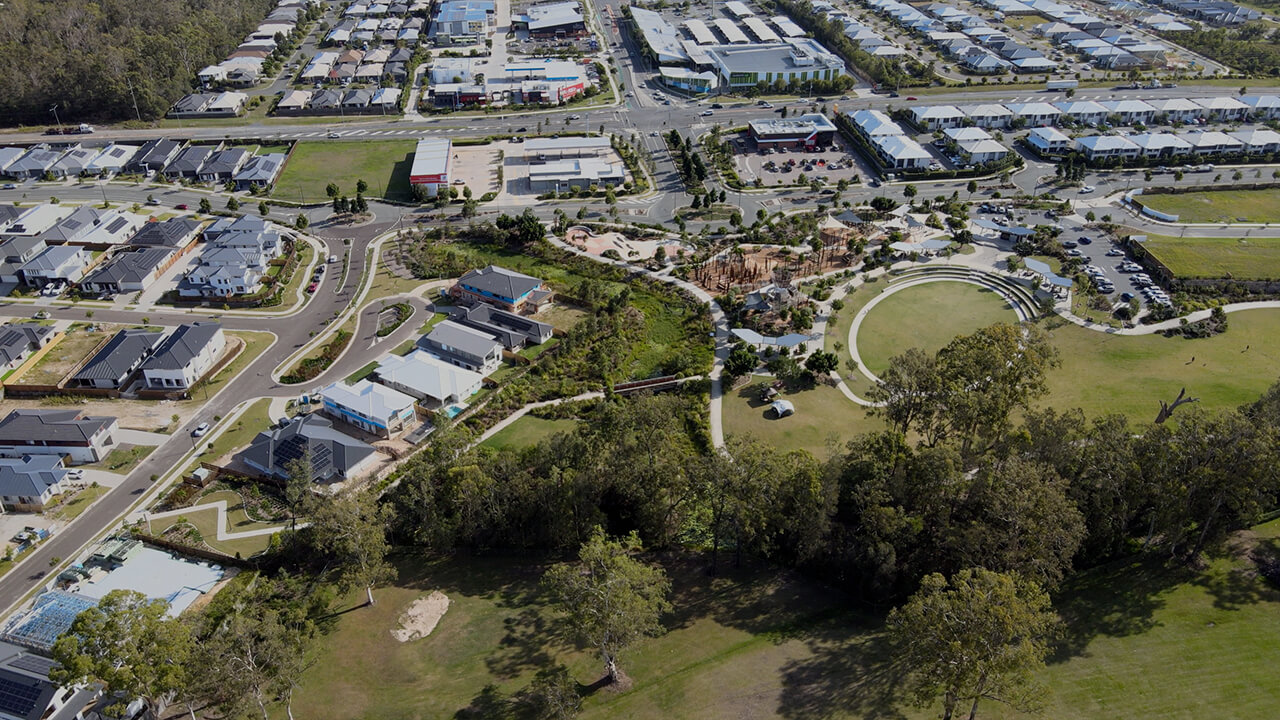From little things big things grow.
Nothing is truer than the impact of property development in Queensland.
From land purchase to site planning, to investigating infrastructure and utilities needed by residents, the groundwork is laid, and the story begins.
Our role is to deliver extraordinary, homes, places and spaces based on contemporary design and outstanding sustainability features.

Our social
contribution
Delivering homes for existing residents and those seeking a better lifestyle in Queensland, is the focus of the property industry. Our contribution extends well beyond the bricks and mortar. Developing roads, pathways, conservation areas, parks and playground, street lights, restaurants and cafes – our project is endless.
A distinguishing feature of property development is the contribution of infrastructure change to local governments and across the state. The delivery of water pipes, sewerage, electricity and roads support both new and existing residents. We are proud to have contributed over $1 billion to the growth of urban development in 2022.
Queensland’s population is increasing at a rapid rate. Ensuring the provision of suburbs, neighbourhoods and towns is our number one priority. Vibrant community hubs where everyone feels connected – a true sense of belonging.
Our sustainability
contribution
Sustainability is not a catchphrase. The positive impact this has on our environment is immense. This is not simply a consideration in our planning, it’s a given. In fact, we take pride in utilising innovative approaches to urban planning that elevate our commitment to environmental sustainability. What exactly does this entail, you may wonder. Reducing or recycling water to develop the site, selecting water-efficient plants, reusing site materials for road base or climbing equipment in parks are some examples. And, who doesn’t appreciate spaces designed to capture the cross-breeze, saving money whilst reducing the need for air conditioning!
Our industry is dedicated to exploring and implementing new technologies, construction methods, and products. Developing sustainable homes, spaces and places is on the top of our agenda. The urban oasis we have in mind, focuses on your comfort, lifestyle, and wellbeing.
Can sustainability features be measured? Yes, it can. The sustainability rating tool, EnviroDevelopment measures performance across six key elements: ecosystems, waste, energy, materials, water and community. Before projects are certified, expert panels (including ecologists, town planners, engineers, architects, lawyers and economists) engage in a rigorous process of ensuring all technical standards are met. Click here to learn more about EnviroDevelopment.
The bigger picture
Who’s employed by the development industry and why it’s needed.
We’re the second largest employer in Queensland (behind healthcare) and directly employs 10% of Queensland’s workforce, and indirectly supports an additional 12%.
10.2%
of Queensland’s workforce is employed in the development industry
237,055
people are directly employed by the property industry, and a further 288,080 are indirectly employed
5.7million
Queensland’s projected population by 2027
98.9%
of homes delivered were by private property developers
Our economic
contribution
The property development industry has experienced massive growth. Comprising architects, engineers, builders, tradespeople, surveyors, and developers, census data identifies the property industry as the 2nd largest employer in Queensland. Organisations and individuals involved in the planning, design, and delivery of residential, commercial, retail and community places are leaders of growth and change.
Directly employing 10% of the workforce, the property development industry pays approximately $16.8 billion in wages and salaries and $1.1 billion in taxes. In comparison to industries where 60% of the money is spent locally, our industry spends 85% of its funds locally, supporting businesses, suppliers and professionals who work there. To put this into context, the property development industry employs a variety of trades and professions, including:
- 3,100 architects and landscape architects
- 9,800 architectural, building, and surveying technicians
- 6,000 concreters
- 20,000 carpenters and joiners
- 11,500 plumbers.
That’s a lot of jobs for Queenslanders. Undoubtedly, the contribution made to the Queensland economy is significant, proactively supporting local and regional communities throughout the state.
Got a question, feedback, or want to learn more about Made for People?

